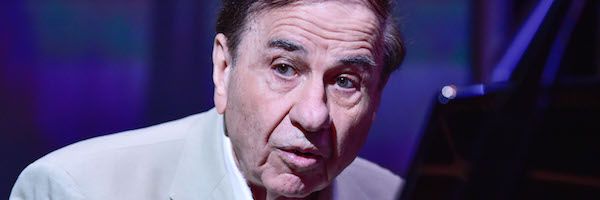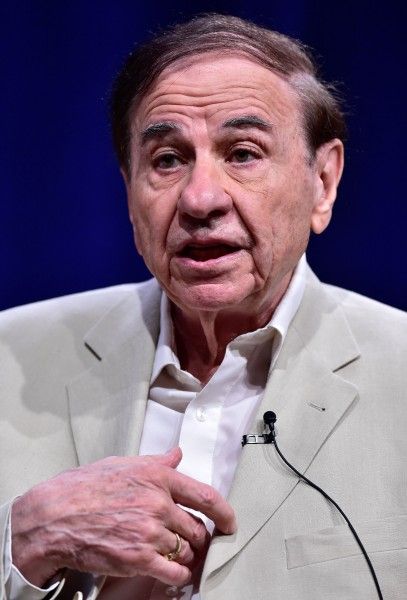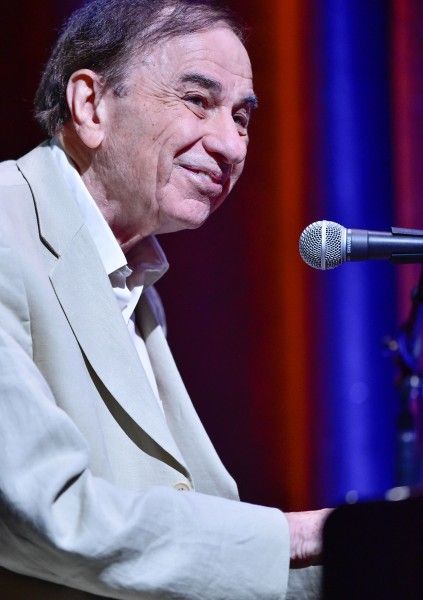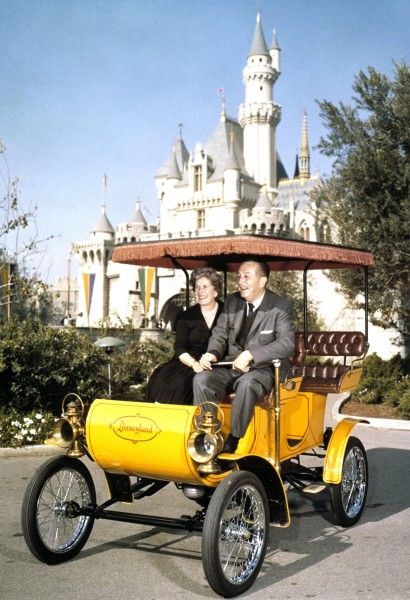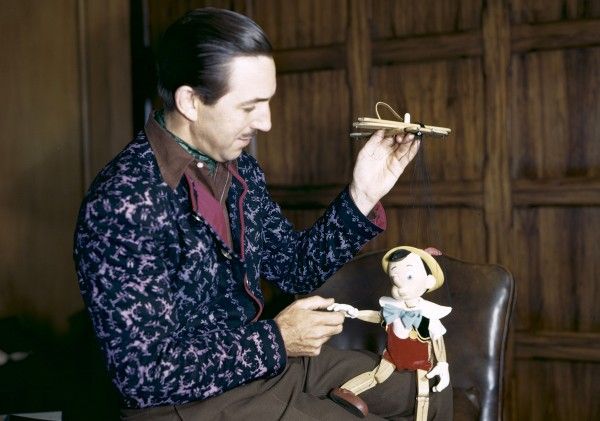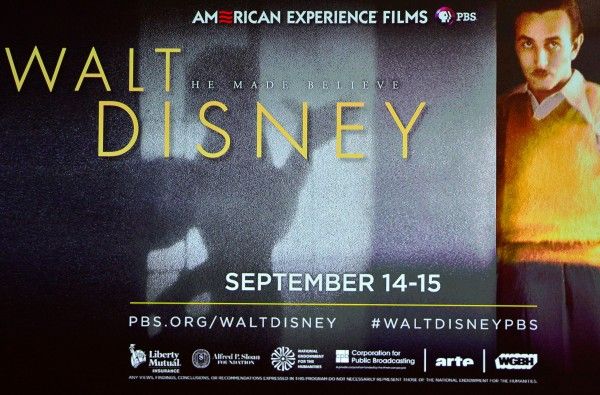Airing on PBS, the two-part four-hour documentary American Experience: Walt Disney offers an unprecedented look at the life and legacy of one of America’s most enduring and influential storytellers. While highlighting some of the ups and downs of his tremendously successful career, the film features rare archival footage from the Disney vaults, scenes from some of his greatest films, and interviews with biographers, historians, animators and artists who worked on the early films, as well as designers who helped create Disneyland. It is a fascinating and compelling look into an entrepreneurial and cultural icon who was both a demanding perfectionist and a man who just wanted to make people happy through the stories he told.
During this exclusive interview with Collider, composer/lyricist Richard M. Sherman (who, along with his late brother Robert B. Sherman, has written more songs for motion pictures than any team in cinematic history) talked about how cool it is to still be writing songs for Disney and Disneyland, what it was like to work for Walt Disney and be a part of his creative team, why storytelling was so important, how surprised he is that “It’s a Small World (After All)” became one of the best known songs in the world, and what most stands out to him about the Disney name now.
Collider: How cool is it to still be writing songs for Disney and Disneyland?
RICHARD SHERMAN: I just finished doing a brand-new song that concludes the 60th fireworks, called “A Kiss Goodnight.” The song was born out of so many years later hearing this story that one of Walt’s dearest memories was that he loved 4th of July and he used to love watching fireworks. So, as they concluded the wonderful finishes touches on Disneyland, he said, “I want to have, every night, a special fireworks show with music, and I want Tinkerbell to fly across the sky. I want to do that to give people a little extra something, or a little kiss goodnight, as they’re going away.” I heard him use that expression and I said, “My god, that’s gotta be a song.” Walt used to like to give people things like that. That was his thing. So, I wrote “A Kiss Goodnight,” and it concludes every night. They had this wonderful singer, Ashley Brown, who was Mary Poppins on Broadway for a few years, record it. It was a wonderful thing to do. That’s my most recent Disney song.
What was it like to work for Walt Disney?
SHERMAN: It was great to work for [Walt Disney]. He was very inspiring to his people. He had won all of those big, horrible battles that he had to fight and he was more benign after that. It’s difficult to have your creations taken away from you and to have the people you thought believed in you all walk out on you. He was just trying to do great stuff and give people joy. He never did anything to depress anybody. He had a lot of naysayers around him, all the time, and he fought against them. They said, “You can’t do an animated cartoon that’s an hour and a half long. You’re crazy!” But Snow White is a world classic, and it just goes on from there. It was just amazing, the things he did in the early years. I adored the man. I make no bones about that. I did 35 pictures at Disney.
It was so clearly important for him to get Mary Poppins made into a film because his daughters loved the story so much.
SHERMAN: Oh, sure. He promised Diane and Sharon, “Okay, you love her so much, I’ll make a movie about her.” For 19 years, he fought that battle, and that was a battle that I didn’t know about. I came in at the end. I was crucial to it, but didn’t know that had happened. I didn’t know, until I saw the script for Saving Mr. Banks, what Mrs. Travers’ backstory was. My brother and I worked for over a year and a half, developing this thing, not even knowing that P.L. Travers was a woman, or that she was alive. He liked what we were doing and he said, “I think I’ve got a movie here.” He didn’t say that to us, but he knew he had something that was going to be pretty darn good. He said, “Now you boys are going to have to meet the author?” We said, “Oh, is he still alive?” And he said, “She is, and she’s tough.” She was impossible. She was very negative and very insulting, and she said terrible things to Walt and to us. She was very protective of this fictional character, Mr. Banks, who she considered her father. Her father was a drunk who died when she was eight, and he had disappointed everybody in the family. He was a total washout. And yet, she had this idyllic Mr. Banks who was perfect. So, innocent as we were of any of this, we were creating a storyline for the stories. The stories have no storyline at all. They’re just adventures. We took six adventures to make a story with them. We had to figure out why Mary Poppins came, and it was a problem with the family, where the father is paying no attention. We had to make sure there was a reason why Mary Poppins comes to teach life lessons and takes the kids on these wonderful experiences to learn something. It was all done for the story. Walt Disney was a story man, and he knew that we were thinking story. That’s why he dug us so much and he hired us to work for him. We always thought about the story. That was more important than any words and any music. That’s all it’s about.
What’s it like to be able to walk into any room and sit at the piano and know that most of the people in the room could sing along with any of your songs?
SHERMAN: It’s very gratifying. I was part of a team and that team made a lot of movies that were great. It took an author to come up with the characters. It took a team of brilliant people to put the film together. It took a great producer to hire the various people to do it. It’s not just you. So, when people say, “I love The Jungle Book,” I say, “Thank you from everybody that was involved in it.” It wasn’t just us. We did the songs, but there were other people that did things, too. Walt was always a great believer in the team. He felt that the team made the pictures, and he was the captain of the team. He just got the best of everybody in the world. So, I’ve always felt very happy that people know our songs, and I feel very lucky that I was a part of that team.
Are you surprised that something as seemingly simple as “It’s a Small World (After All)” became one of the best known songs in the world?
SHERMAN: People either want to kiss us or kill us for writing it. Walt Disney had created a wonderful experience for people to the children of the world singing national anthems from the various countries. That’s what it was all about. We were called in, in a panic, because it was a cacophony. It was a mess, and it didn’t work. They were going to open it at the World’s Fair and they had all these people toiling on the costuming and the creation of the animatronics, so that the kids could dance and move their mouths. Walt said, “I’ve got to have a simple song that can be translated into any language, so it has to be simple with repetitions in it. Make it simple, like a folk song. It’s all about the children of the world and how they have to learn to live together because we’re all part of the same world and it’s a small world.” We were like, “Okay, sure, Walt.” And he was like, “And I need it yesterday.” So, we wrote it under pressure. It was just a simple little folk song, but it worked. We played it and Walt listened to it, and his classic remark when he liked something was, “Yeah, that will work.” So then, we played it for the people who were creating the ride and they were very excited about it. We all sang it. We knew we had a catchy little song. We never dreamed it would become a world classic. Of all the things we’ve ever written, anywhere I go, whether it’s India, China, or anywhere, people know that song and they sing it with me in their own language.
What’s it like for you to go on the ride and hear the song?
SHERMAN: It’s a ritual, every time I go to Disneyland. We all go on the ride, even the grandchildren now. I love it. It’s great.
People tend to only think about the Disney magic, but this documentary shows the good and bad sides to Walt Disney. Do you think it’s important for people to remember that there is a human being behind the Disney name?
SHERMAN: I think it’s very important for people to realize that there was this one brilliant man, in the last century, who was a great storyteller, who loved people, and who dedicated his life to making people happy with his stories. The story might have been a Disneyland Park, it might have been a film, or it might have been a television program, but no matter what it was, he was telling stories. He was a storyteller, and that’s what he wanted to be remembered as. He used great, talented people to come in and help him tell his story. He was very proud of having a very good team. You hear that Walt Disney was tough, but he had to be, in those days. He really did. But once a great deal of those wars were won, he softened. I came in at the time when it was the Golden Age. Some of the old timers who had been there long before Bob and I walked on the lot said that he was not always so easy. He was still tough on people when it came to story. The meetings were uptight, but he was fair. He would listen to everybody. He wanted everybody to feel free to make suggestions, but you dare not be negative. He wanted solutions.
When you think of the Disney name, what stands out for you?
SHERMAN: I think there are some marvelous films that have been made. There are a lot of things that I’m not crazy about, but they make so much product now. What they’re doing at the studio, for the most part, is very commendable. It’s good stuff. I’m very pleased with it. I like the fact that they’ve branched into theater and they’re doing great theater. They’re a big factor in the Broadway scene now. They took Mary Poppins and made a great theatrical experience, and I’m very proud to be a part of that. We’re going to be doing the same thing with The Jungle Book, and we’re doing it with Bedknobs and Broomsticks.
American Experience: Walt Disney airs on PBS on September 14th and 15th.

